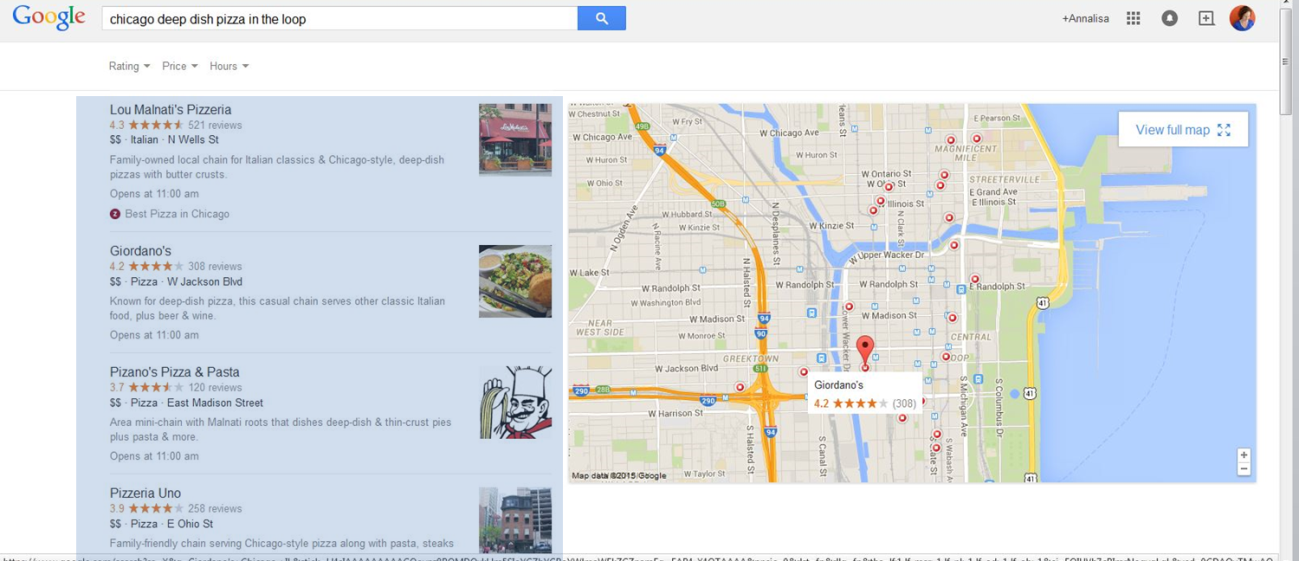Members of the Pole Position Marketing pit crew answer your web marketing questions from their unique perspectives with a “bonus lap” by a guest industry pro.
Have a question you’d like answered?Ask the pit crew!
Stoney deGeyter’s Answer from an SEO Perspective:
[inlinetweet prefix=”” tweeter=”” suffix=”@StoneyD”]From a pure SEO standpoint, you need content in order to have optimization.[/inlinetweet] Yes, we can tweak title tags, coding, and site architecture—all valuable—but the content has to exist in order to optimize it for better search engine positions.
Optimization aside, content is all about messaging. And this is probably more important than keyword optimization itself. You have to have the right message to compel your visitors to take action or get them to engage with your company. It’s the messaging the sells. Without the right messaging then your content will completely miss its mark. Sure, it can be optimized and even rank well, but if the visitor does not find it compelling, they’ll ignore it at best, and find you uncredible and leave your site at worst.
With the right messaging—and the right language (via keywords)—you have a real opportunity to not just drive targeted traffic to your site, but to ensure your content does the job of creating customers out of those visitors.
Deb Briggs’ Answer From a Content Marketing Perspective:
The real question here is, how well do you know your audience? Many times businesses say they know who their customers are, yet they haven’t created buyer personas that would help pinpoint the types of content that would lead them through the conversion process.
Of course, the real reason behind creating an in-depth buyer personas is to get into the mindset of your customers. If you don’t understand their pain points and challenges, how can you provide content that will convince them your product or service can alleviate their problems?
Once you have a better idea of who your target customers are, you can more easily determine which types of content to produce. Do you need to write more blog posts that educate potential customers on the services you offer? Can you produce YouTube videos showcasing the benefits of your products? Perhaps white papers with more in-depth information will appeal to a buyer persona who likes to do more research before making a high-dollar purchase.
[inlinetweet prefix=”” tweeter=”” suffix=””]Before you begin creating content, get to know your audience first[/inlinetweet]—their demographic information, their job titles and duties, their pain points. You’re much more likely to drive traffic to your site if the content you create will truly help your potential customer.
Kathy Gray’s Answer from a Social Media Perspective:
Social media and content marketing are like peanut butter and jelly, Fred and Ginger, Homer and Marge, Scooby and Shaggy, Batman and Robin… OK, I think you get the drift. They can be great on their own, but when used together they create an awesome marketing team for your business. Why? Social media is content driven. You need something to say, something to share, and something to start conversations with. Creating content is great, but you also want that content to be consumed by your target audience.
If you want your content marketing to be truly effective, create a strategy, but don’t create it in a bubble. Look at how you can integrate with other marketing channels and disciplines such as SEO, email marketing, social media, and (gasp!) print or other offline marketing efforts. [inlinetweet prefix=”” tweeter=”” suffix=””]All of your marketing efforts should tie together and carry through a consistent theme and brand message[/inlinetweet]whether they’re online or offline. The companies that I see having the least amount of success on social media either don’t have a content marketing strategy that ties in with their social media strategy or are not taking advantage of content marketing in any form.
So, before you jump headlong into content marketing and start publishing content without a plan, take a step back and think about your audience, your business goals, and how your content marketing can complement or enhance your other marketing plans.
Annalisa Hilliard’s Answer From a Link Building & Local SEO Perspective:
Like it or not, search engines are the major gateway sending traffic to websites. In order to even show up in search results, content is a necessity.
If you own a local business, you may have heard that local centroids (central place of relevance) for search are now individual users. In other words, where the individual is when they run the search and where your business is located will impact whether it comes up in a local search.
So, let’s say a searcher is visiting Chicago and looking for the best deep dish pizza in The Loop. Different devices (i.e.: mobile v. desktop) and the searcher’s location (i.e.: Canton, Ohio v. The Loop) along with other factors, will affect the results. Below is a comparison of mobile and desktop, both searches were performed in Canton, Ohio. I searched, “chicago deep dish pizza in the loop.”
My mobile results:

My desktop results:
Notice all the red dots on each of the maps. Each dot represents a place to get pizza. Without a web presence with strong content, it’s very unlikely your pizza shop will show up on this map and even more improbable that you’ll show up in the local listing results.
In terms of local search, you don’t just need content, you need to build specific pages on your site for local visibility. Each page created to confirm your authority on the best Chicago deep dish pizza in The Loop. That doesn’t mean all of the pages have the same content, but rather a cohesive strategy.
[inlinetweet prefix=”” tweeter=”” suffix=””]Content is communication—without it your local web presence is non-existent.[/inlinetweet]
Mike Fleming’s Answer From an Analytics & Conversion Optimization Perspective:
While it can be said that everything online is “content” in the strict sense of the word, I’ll assume we’re talking only about informational content (as opposed to sales content). Consider this: It’s estimated that approximately 50-80% of search queries are informational in nature. Does that mirror the content on your site? Does it mirror how traffic gets to your site? Now, I’m not saying that if your site doesn’t get at least 50% of its traffic from informational content that you’re doing a bad job. Every industry is different. Our website gets 70% of its traffic from informational content. Most people searching for web marketing content are searching for informational content by nature. On the flip side, an industrial B2B site should expect it to be much less.
When it comes to your social presence, the percentage should be even higher. While many people that search have purchasing intent, people don’t hang out on social networks waiting to see and act upon your offers. They are there to socialize (duh!), relax, laugh, be wow-ed, feel enriched, learn something new, share interesting things with their friends, etc. If your content isn’t bringing traffic to your site, you’ve got a quality problem with either your content or the audience you’re reaching. In the social environment, there are few sites that could justify not having a majority of their traffic coming from informational content.
BONUS LAP WITH Drew Eastmead:
We didn’t just pick Drew Eastmead because he graduated from an Ohio school (Miami University, to be exact), although that is a plus. His insights into content marketing come from over a decade of experience in online marketing and website management. He currently is the Director of Content Marketing at Vertical Measures where he leads the content marketing team, overseeing creative, written and video production.
Content marketing can be as effective as you want it to be. If you commit as an organization to publishing helpful, useful content for your customers, we’ve seen content marketing be incredibly powerful for business of all sizes, in almost every industry. The key is to leverage internal resources—or hire a great partner—so you can consistently create content over the long haul. You’ll need to work to get buy-in from decision makers and everyone on your team so content marketing can become part of your culture. That will ensure your content’s effectiveness.
The reason we have skeptics is because too often, companies think content marketing is a silver bullet that will drastically increase leads and revenue in a couple of months. [inlinetweet prefix=”” tweeter=”” suffix=””]Content marketing isn’t a campaign—it’s a long-term play.[/inlinetweet] But for those who do go “all in,” you can see business-changing results:
- 82% of marketers who blog see positive ROI for their inbound marketing. Source: State of Inbound Marketing (http://www.stateofinbound.com)
- Content creation is ranked as the single most effective SEO technique. Source: Marketing Sherpa (http://sherpablog.marketingsherpa.com/search-marketing/seo-tactics-chart-creating-content-most-effective-how-to-start/)
- Average website conversion for companies with defined content processes is more than twice that of companies without (5.9% vs. 3.8%). Source: CMO Essentials (http://www.aberdeenessentials.com/cmo-essentials/39-essential-content-marketing-facts/)



